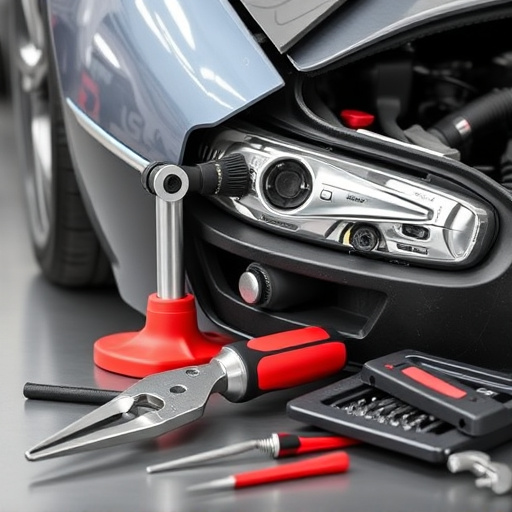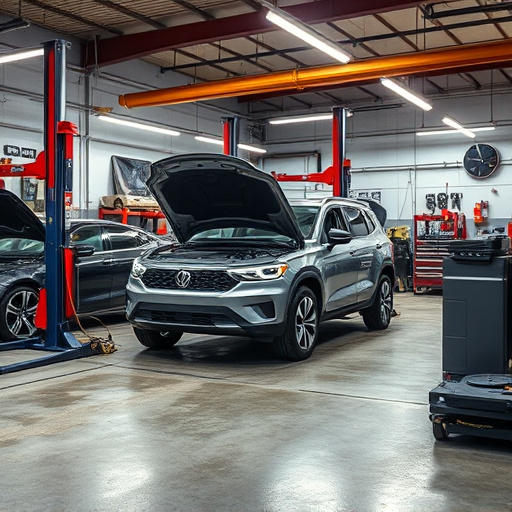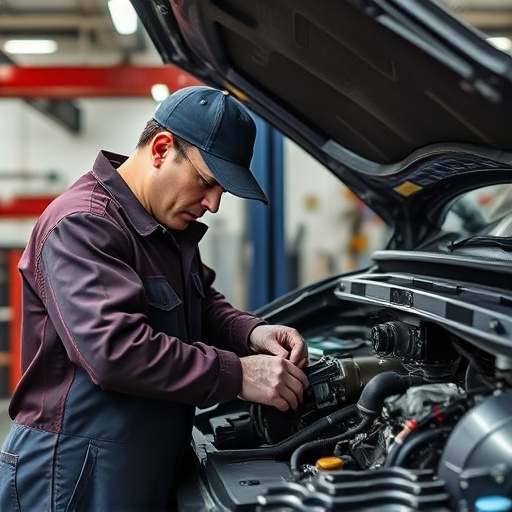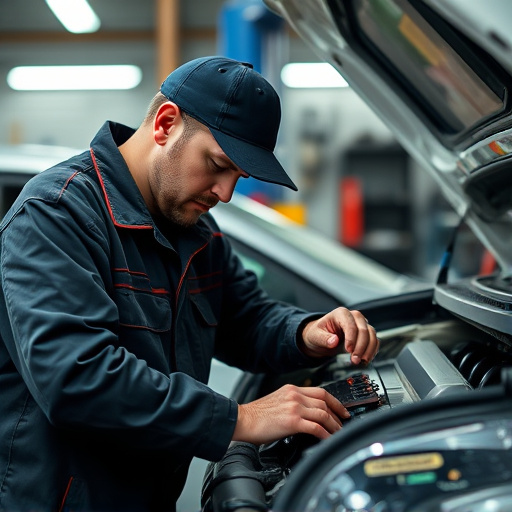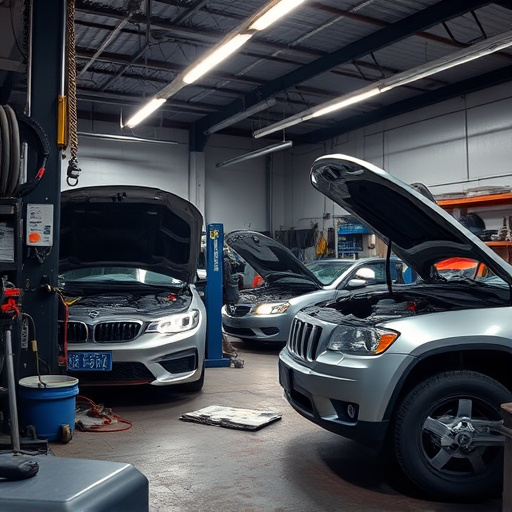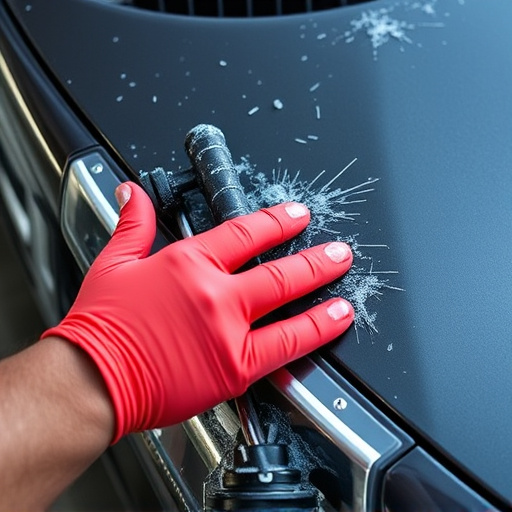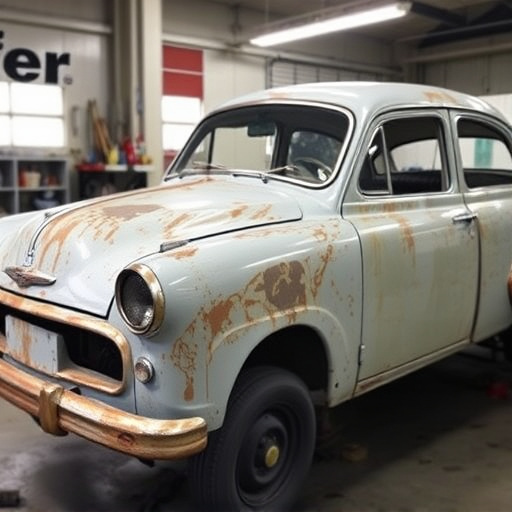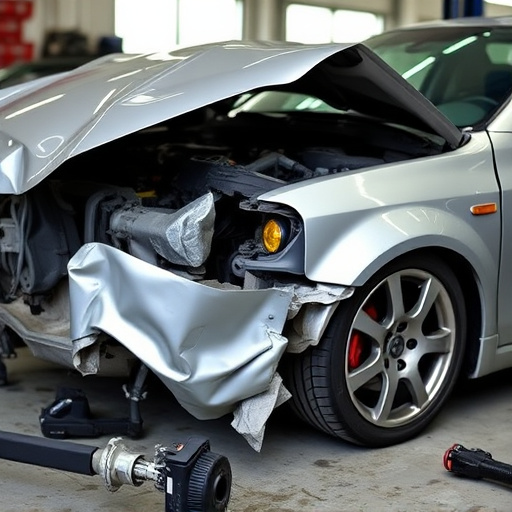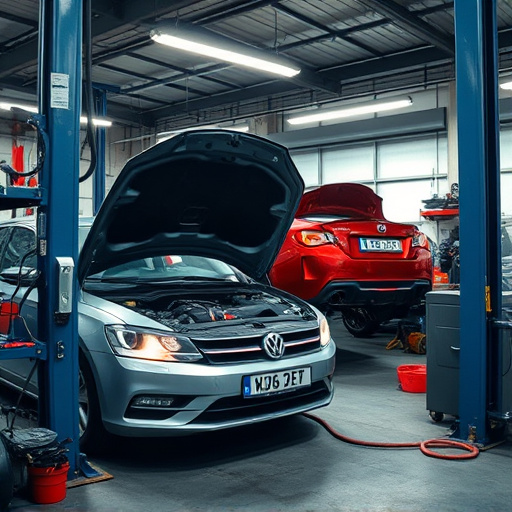Aspiring expert auto body technicians must first acquire foundational training covering core principles like basic mechanics, metalworking, and painting techniques. This includes practical skills in auto glass repair and safety protocols. Formal education then builds on this base, offering advanced courses in automotive restoration, materials science, and modern tools. Hands-on training and certifications in areas like paint restoration and CAD software further specialize skills, making technicians adept at handling classic to modern vehicle repairs professionally.
Training is the cornerstone for any aspiring expert auto body technician. From foundational knowledge to advanced specializations, continuous learning ensures success in this dynamic field. This article explores the multifaceted journey of becoming an industry expert. We delve into the critical role of formal education and certifications, highlighting core courses essential for beginners. Advanced techniques, such as paintless dent removal, demand specialized training while staying abreast of industry innovations is key. Mentorship and practical experience, through apprenticeships and collaboration, refine skills, fostering mastery among auto body technicians.
- Foundational Training: Laying the Base for Expertise
- – The importance of formal education in auto body repair
- – Core courses and certifications for beginners
Foundational Training: Laying the Base for Expertise
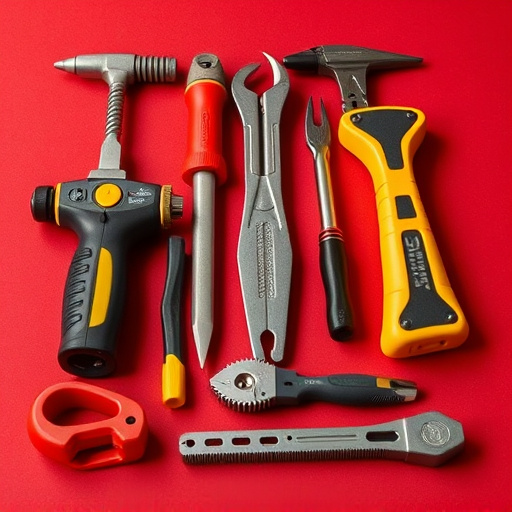
The journey to becoming an expert auto body technician begins with foundational training that lays the base for future expertise. This initial stage is crucial as it introduces students to the core principles and practices of vehicle repair services, setting the tone for their career path. The curriculum typically covers a range of topics essential for any collision repair shop, including basic mechanics, metalworking, painting techniques, and safety protocols.
During this phase, technicians-in-training learn the fundamentals of auto glass repair, understanding its intricate processes and the importance of precision. They develop hands-on skills through practical exercises, ensuring they can handle various tasks, from simple dents and dings to more complex structural repairs. This solid foundation equips them with the knowledge and abilities to tackle even the most challenging jobs in a professional manner, setting them on the path to becoming respected experts in the industry.
– The importance of formal education in auto body repair
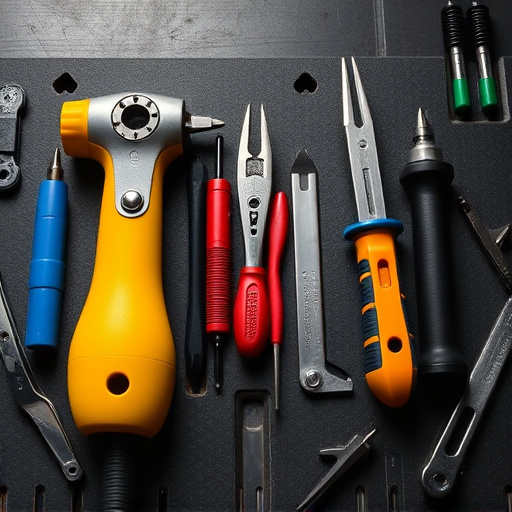
For aspiring expert auto body technicians, formal education is a cornerstone in their journey towards mastery. Comprehensive training programs that blend theoretical knowledge with hands-on experience are instrumental in shaping skilled professionals capable of tackling complex vehicle collision repair tasks. These educational pathways equip students with an in-depth understanding of automotive restoration techniques, materials science, and advanced shop tools.
By participating in structured courses, future technicians gain proficiency in various aspects of vehicle repair services, from basic welding and painting to sophisticated electronics systems and structural integrity assessments. This well-rounded approach ensures that expert auto body technicians are not only adept at fixing dents and cracks but also equipped to handle modern vehicles’ increasingly intricate systems, ultimately fostering their reputation as industry leaders.
– Core courses and certifications for beginners
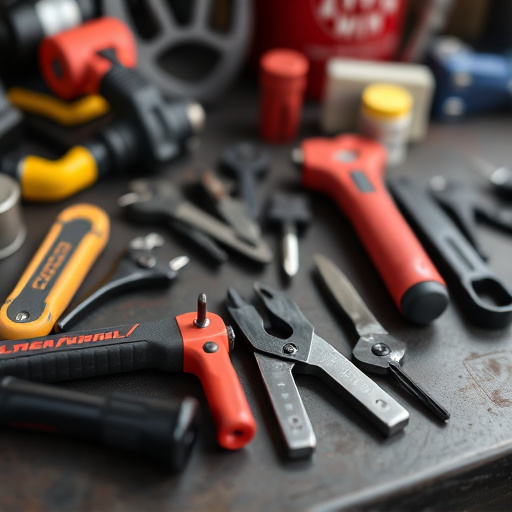
For aspiring expert auto body technicians, the journey begins with a solid foundation in core courses and certifications designed to equip them with the essential skills. These foundational programs typically cover a range of topics including basic automotive mechanics, metal fabrication, and paint technology. Students learn not just about repairing and replacing parts, but also about the intricate processes involved in collision repair at a certified auto glass replacement or collision repair center. Hands-on training in these areas is crucial, allowing technicians to gain practical experience before entering the field.
In addition to core courses, pursuing specialized certifications can significantly enhance a technician’s expertise. Certifications in areas like advanced paint restoration techniques and computer-aided design (CAD) software for precision body work are increasingly valued by employers. These skills not only make an auto body technician more versatile but also equip them to handle complex repairs, ensuring they remain competitive in the ever-evolving automotive repair industry.
To become an expert auto body technician, a robust foundation through foundational training is essential. This includes rigorous core courses and certifications that equip individuals with the necessary skills and knowledge. By investing in their education, aspiring technicians can master the art of repair, ensuring they stand out in the industry as skilled professionals.
